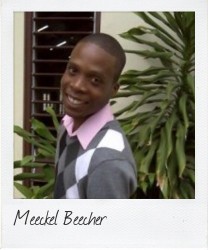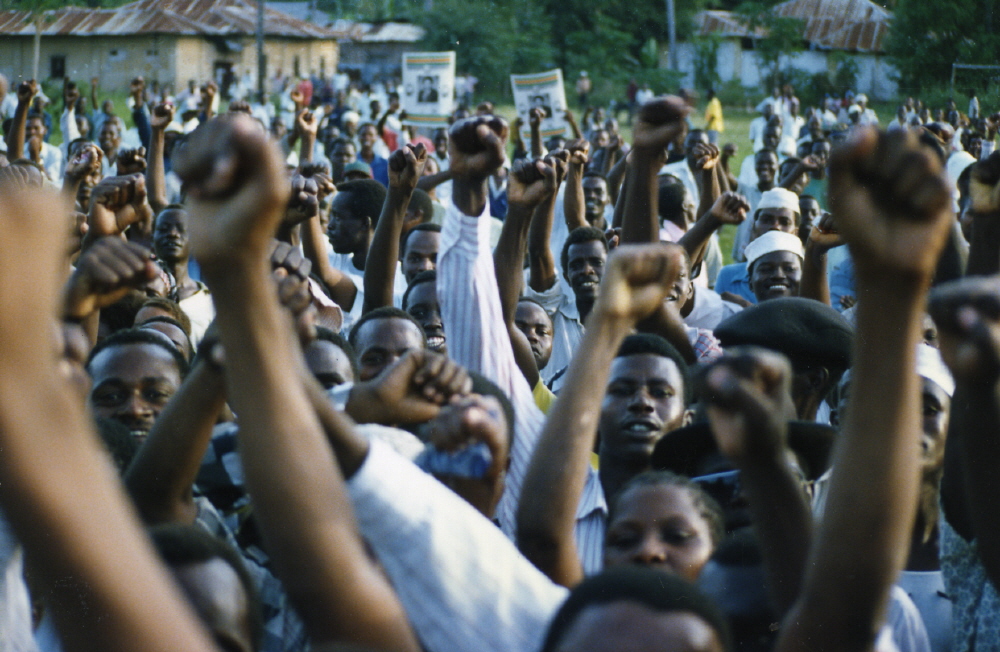“Democracy is about equity and justice”
February 5 Democracy has become the standard for governance world wide, writes Meeckel Beecher, 25, a Commonwealth Correspondent from Jamaica, but even as social media engages more citizens, democracy can be limited by the concept of “rule of the majority” – a concept that can deny justice for some in a plural society.
Democracy has become the standard for governance world wide, writes Meeckel Beecher, 25, a Commonwealth Correspondent from Jamaica, but even as social media engages more citizens, democracy can be limited by the concept of “rule of the majority” – a concept that can deny justice for some in a plural society.
Democracy, although largely described as a “Western Ideal”, has become a standard for governance across the world because it is undeniably the principle truest to the human spirit.
It remains relevant simply because humans have a natural inclination to decide their own affairs and lives. These decisions, we hope, come without imposition from pre-established systems.
Now more than ever people are affirming individual identities and are ensuring that their concerns are known. Social media puts tremendous power at our fingertips and formerly ignorable questions gain public traction in a matter of seconds as worldwide campaigns develop from a tweet or a Facebook page. Social media platforms and individual identity affirmation provide unimaginable fuel for democracy.
Unfortunately, there still exists an idea that limits democracy to the concept of “rule of the majority”. Unknowingly, those who support majority rule as a sign of democracy do not know that this concept is the complete antithesis of democracy. Rule of the majority alienates all citizens from active participation, while democracy is an engaging process that considers varying views and respect for all persons involved. The decisions made in a democracy must be some sort of consensus.
Amartya Sen, Indian philosopher, economist and Nobel Prize winner, once said that democracy has complex demands which certainly include voting and respect for election results, but also require the protection of liberties and freedoms, and respect for legal entitlements. The fundamental philosophy that keeps democracy alive is that democracy is about equity and justice.
Yet there are communities in Jamaica that have for decades enjoyed being privileged majorities. One particular group has pledged to fight to ensure its privilege is maintained. This group supposes it is inherently superior to other Jamaicans and constantly opposes important legislation to protect vulnerable groups. It fails to grasp the concept of true democracy and does not realize that everyone has the right justice and equity before the law.
In 2011, the Government of Jamaica passed the Charter of Rights Amendment to the Jamaican Constitution. From the amendment is an obvious disregard for the right of minority groups such as gays, lesbians, bi-sexual and transgendered people. This disregard came after constant lobbying by Christian groups who disingenuously used scare tactics linking homosexuality to pedophilia. The result is a law that excluded some Jamaican citizens from protection.
It is very important that the Government of Jamaica understands it serves a plural society and cannot continue to accept the privilege of the majority theory. Democracy connotes wide-ranging liberty, including the freedom to decide one’s own course in life and the right to play an equal role in forging a common destiny. Democracy means social and civil equality, and a rejection of discrimination and prejudice. My hope is that one day the Government and people of Jamaica will wake up and make Jamaica a place where no one is more equal than another.
Photo: © Commonwealth Secretariat
…………………………………………………………………………………………………………………
About me:
“I am a development enthusiast who believes that the effective mobilization and utilization of youths are fundamental aspects of development. I believe education is a panacea for the world’s ailments and support the notion that literacy is a human right and is one of the best tools for human development.
“Literacy is essential in eradicating poverty, reducing child mortality, achieving gender equality and ensuring sustainable development. I am an Education Outreach Officer and currently the Jamaica Youth Ambassador to the United Nations.”
…………………………………………………………………………………………………………………
Opinions expressed in this article are those of the author and do not necessarily represent the views of the Commonwealth Youth Programme. Articles are published in a spirit of dialogue, respect and understanding. If you disagree, why not submit a response?
To learn more about becoming a Commonwealth Correspondent please visit: http://www.yourcommonwealth.org/submit-articles/commonwealthcorrespondents/




